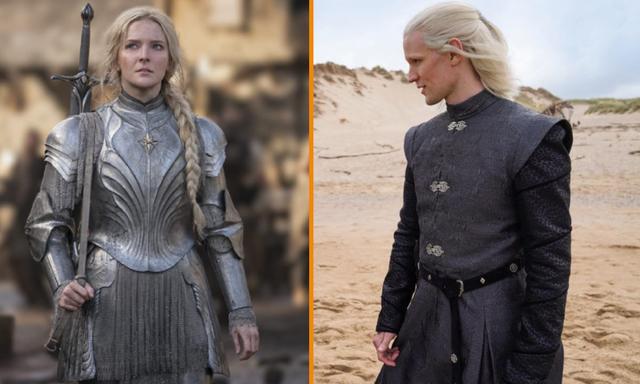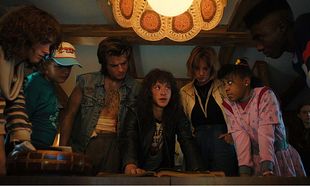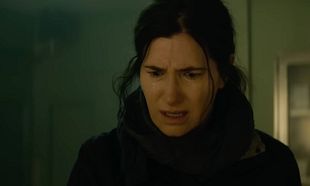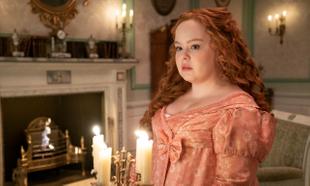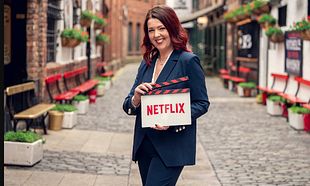In the much-anticipated lead up to the release of both 'House of the Dragon' and 'The Rings of Power', all people could about was which one would be better.
From there a war was born. A war that would be televised for all to see and judge as the episodes rolled out week by week. But, what became clear by the time Prime dropped the first two episodes of 'The Rings of Power' - two weeks after the first episode of 'House of the Dragon' - was that these are two very different shows. So why are we still comparing them?
Well, quite simply, these are arguably two of the biggest fantasy IP's of all time. Both are prequels to a highly successful body of work with millions of fans across the world. They're also being made by two rival companies - one, an established TV network which has birthed some of television's best shows, the other, a billionaire-backed behemoth throwing its weight into the streaming wars. Both are also based on books by authors with two R's for initials (seriously, does anyone else think about that as much as I do?).
So, yes, there's a lot of superficial comparisons to be made here. But when you dig deeper into the shows themselves, there really isn't much in common besides that.

From the beginning...
Let's start with 'House of the Dragon'. Its predecessor, 'Game of Thrones' fuelled a renaissance in the fantasy genre. Growing financial power in television meant that the CGI-fuelled budgets could finally compete with the big screen and the type of long-form content that most fantasy shows demanded was achievable.
The appetite only grew stronger as the years went by. We saw an increasing fandom grow and grow until the series became a cultural phenomenon. Nothing like it had been seen before. A show, with so many characters to love, so many to utterly despise, with so much on the line. At any point an important character could be killed off in the most shocking way (I still have nightmares over Shireen Baratheon). It was new, it was exciting, it was the best of times.
Eventually though, it become a victim of it's own success. The less said about it the better at this point, but a bloated, rushed and ridiculous final season saw one of TV's most talked-about shows disappear from the cultural zeitgeist almost instantly after the final episode.
With news of the many spinoffs planned within the world of George R.R. Martin's world ramping up, people didn't seem to care too much. We didn't want to be hurt again. And so we closed our eyes and dug our fingers into our ears, while 'The Rains of Castamere' played softly in our heads.
However, as the ramp up to 'House of the Dragon' began, it was simply too much to ignore. The first episode released and, just like that, everyone was hooked again. The political plotlines, the backstabbing, the sneering looks, it's all so 'Game of Thrones'. It's all so hard to look away.
While all this was happening, we were waiting with bated breath for the most expensive show of all time to land. 'The Lord of the Rings: The Rings of Power', to give it its rather clunky full title was the brainchild of humble space-faring billionaire and self-proclaimed nerd Jeff Bezos, who was personally invested in creating a competitor to 'Game of Thrones' for his Prime Video streamer.

What's so different about them?
In a weird way, there would be no 'Game of Thrones' if it wasn't for 'Lord of the Rings'. In the same breath we could also say there would be no 'Rings of Power' without the 'Game of Thrones' TV show.
However, where 'The Rings of Power' seems to really differentiate itself from 'House of the Dragon' is it's moral standpoint in the show. The series' portrayal of good vs. evil is so much clearer than its HBO rival.
'House of the Dragon' feels more real, more human and grounded despite its fantastical setting. If you were to take away the dragons it could almost mirror the historical feuds of medieval Europe.
'The Rings of Power', however, is much more a black and white version of fantasy. It's lush and beautiful settings are mirrored on the real life wonders of New Zealand and other global sweeping vistas, but it still feels distant - a faraway land. There are less barriers in terms of magic, mysticism and the unknown within Tolkien's world.
While 'The Rings of Power' thrives in the direct battle between good and evil, 'House of the Dragon', and 'Game of Thrones' before it, is at its best when exploring the depths of moral ambiguity.
You never really know who to route for and there are fewer clearly defined villains. It's a story of power, not morality.

The real winner
Of course, the real winner is us, the fans. While there has been issues regarding vile racist and misogynistic remarks from "fans" of both franchises, most of us have been able to enjoy the two wonderful debut series so far. While neither are clear of scrutiny in their early days, it's fair to say both have made a strong enough start to suggest they'll be around for seasons to come.
In fact, the success of both shows adds to the power of the fantasy genre as a whole. Following the success of 'Game of Thrones', shows like 'The Witcher', 'The Wheel of Time' and 'The Sandman' have all brought beloved fantasy literature to the screen. 'The Rings of Power' and 'House of the Dragon' can only further that interest.
So, rather than pitting these two massive shows against each other, we should celebrate both. Each show doesn't just bring something new to the table, it makes that table bigger. Now, it's time to dig in and feast your eyes.
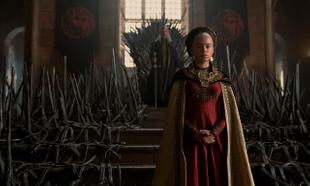
Both 'House of the Dragon' and 'The Rings of Power' are available to watch on NOW TV and Prime Video respectively.
